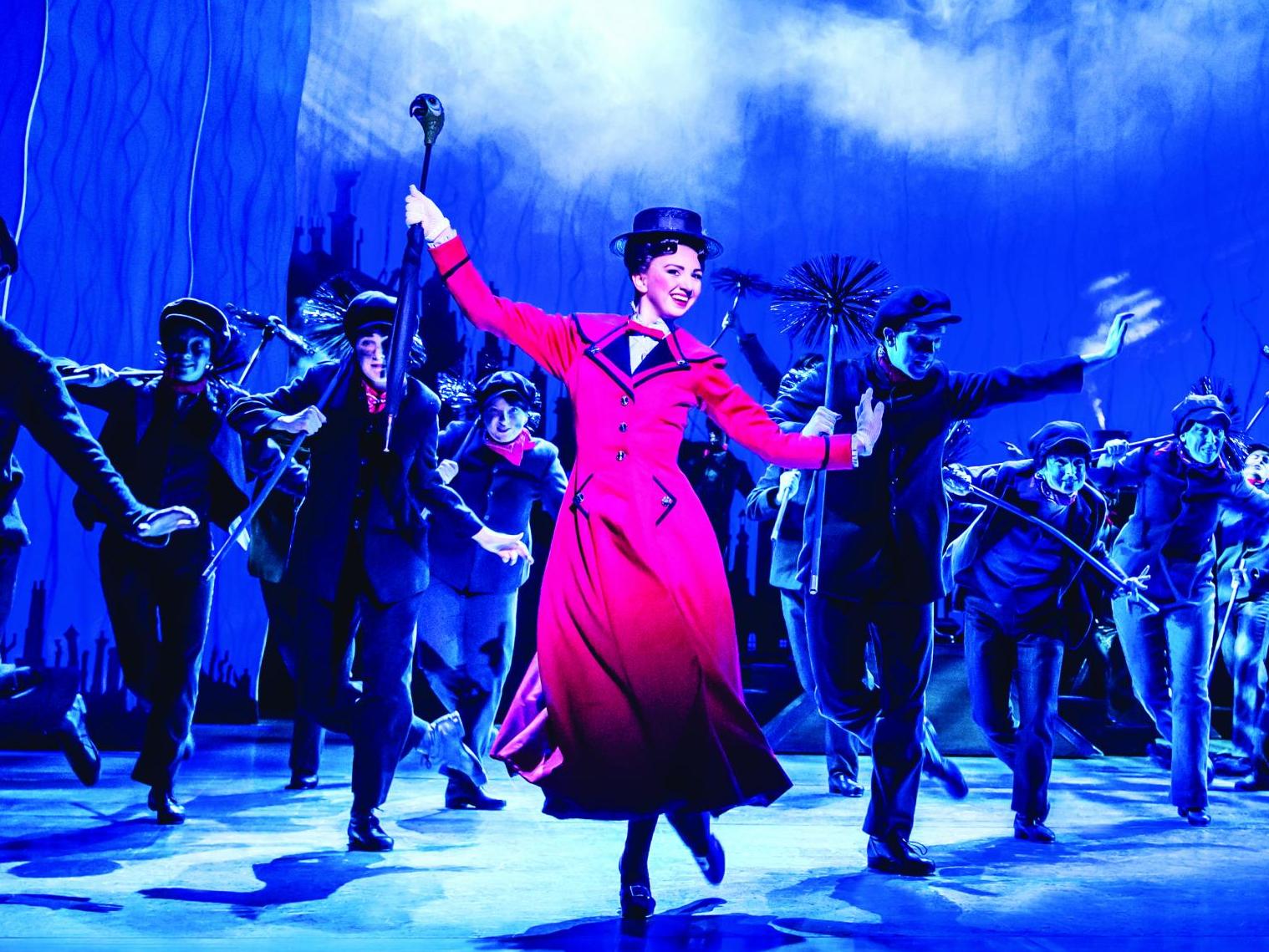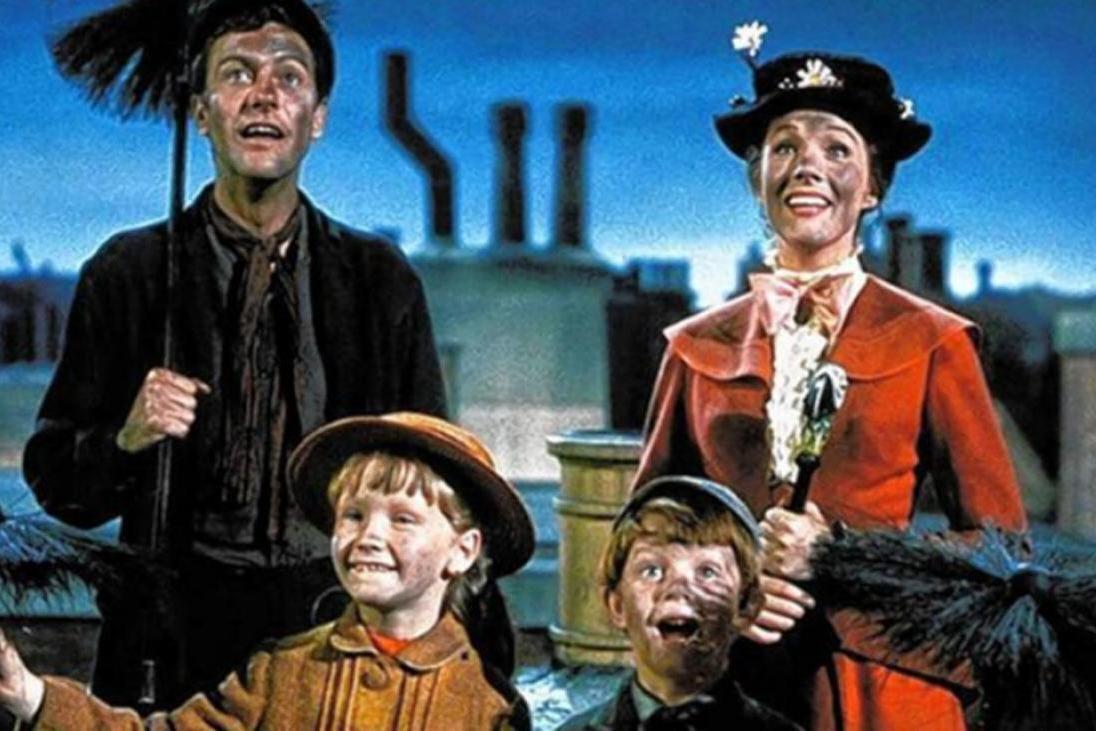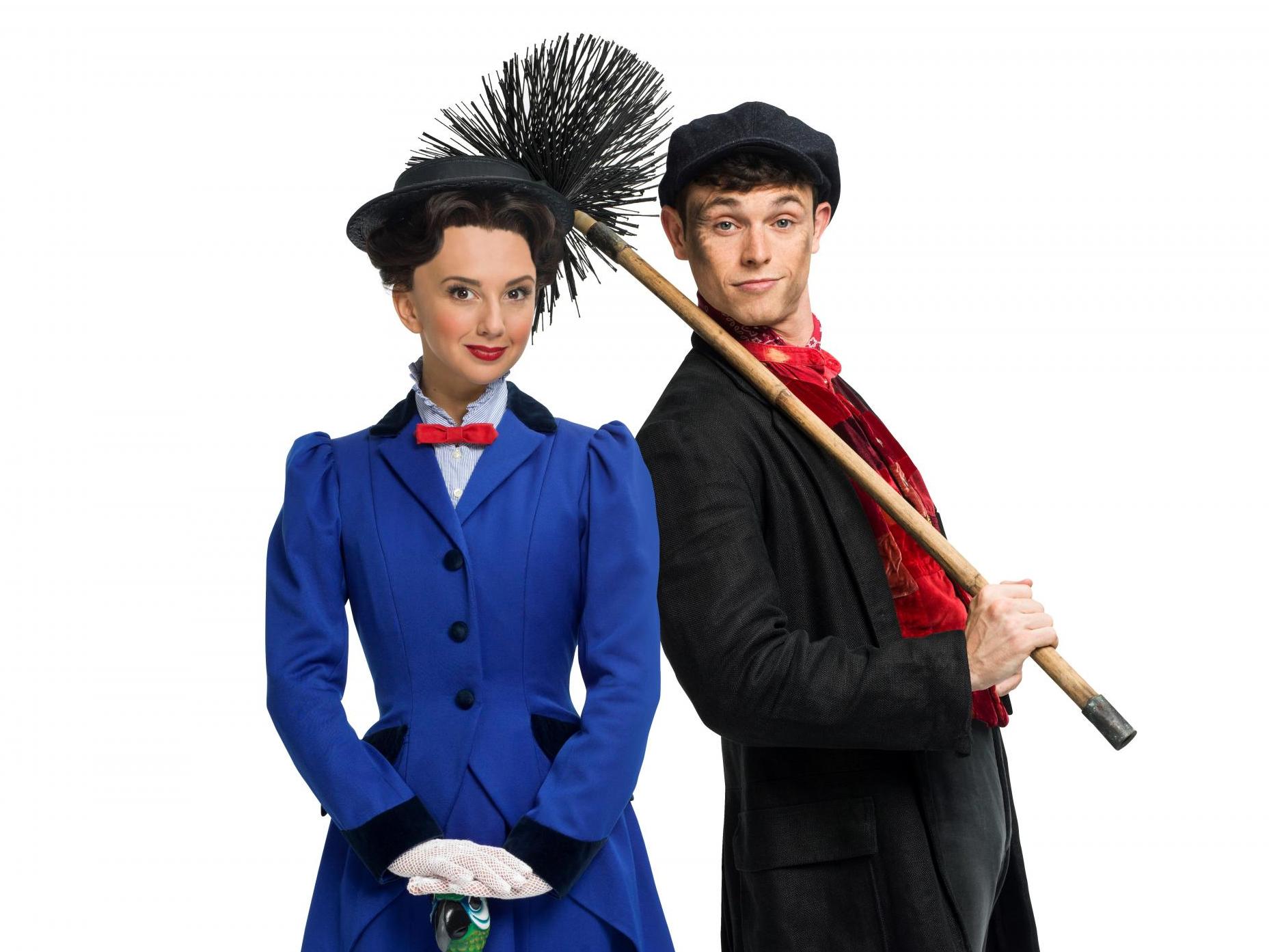Will the new West End revival of Mary Poppins prove to be ‘ahead of the #MeToo curve’?
First seen at this address 15 years ago, the production arrives after a spate of works have complicated and enriched the Mary Poppins phenomenon, writes Paul Taylor

Your support helps us to tell the story
From reproductive rights to climate change to Big Tech, The Independent is on the ground when the story is developing. Whether it's investigating the financials of Elon Musk's pro-Trump PAC or producing our latest documentary, 'The A Word', which shines a light on the American women fighting for reproductive rights, we know how important it is to parse out the facts from the messaging.
At such a critical moment in US history, we need reporters on the ground. Your donation allows us to keep sending journalists to speak to both sides of the story.
The Independent is trusted by Americans across the entire political spectrum. And unlike many other quality news outlets, we choose not to lock Americans out of our reporting and analysis with paywalls. We believe quality journalism should be available to everyone, paid for by those who can afford it.
Your support makes all the difference.Mary Poppins sniffs as if at a slightly improper suggestion when Mrs Banks brings up the subject of references. “I make it a rule never to give references,” she declares airily to the mother of Jane and Michael Banks in the stage musical, now in previews at London’s Prince Edward Theatre. “A very old-fashioned idea to my mind,” she adds, with a faint hint of Lady Bracknell. “The best people never require them.” She’s not being rude, exactly, but her tone leaves little doubt about who is interviewing whom in this encounter.
This suggestion of inscrutability – of the stern, slightly droll briskness with which she refuses to explain herself to anybody – is a characteristic which literature’s predominant diva of the nursery shares with her creator, PL Travers, who first wrote about her in a book published in 1934. It’s not that Mary Poppins needs to fear adverse testimonials from previous employers. It’s more that a testimonial might well expose those glaring, imponderable gaps in her back story. How would you get your bearings on a figure who seems to have blown in on the east wind, “to have existed as long as recorded time and to be friendly with the powers of the universe”? That’s how she’s described by Richard Eyre, director of the stage-musical version.
First seen at this address 15 years ago, the production touches down after a spate of works have complicated and enriched the Mary Poppins phenomenon. Will it prove to be “ahead of the #MeToo curve”, as Cameron Mackintosh, the show’s co-creator, puts it? And will it be more relevant than ever in its take on banking, after the collapse of Lehman Brothers? Chief among the works that have taken up a place in the Poppins archive is Saving Mr Banks (2013). It’s a movie that revealingly focuses on how resistant the prickly, fastidious Travers (superbly played by Emma Thompson) was to selling the screen rights to her books to Walt Disney, and how phobic she remained to the 1964 movie, with its magical blend of live action and animation.
Regardless of the fact that it bestowed on Travers the freedom to kvetch all the way to the bank (with a deal that entitled her to 5 per cent of the profits), she persisted in dismissing Disney’s film as a sentimental travesty. Saving Mr Banks also movingly traces the personal roots of the Poppins dramatis personae back to the author’s own Australian childhood. Her beloved father (portrayed by Colin Farrell) was a failed banker and alcoholic dreamer who died when his daughter was seven. Bringing a much-needed sense of order to a household that had been further unravelled by the suicidal breakdown of her mother, Travers’ severe, kindly, pointy-toed Aunt Ellie is identified as a model for Poppins herself.
So the cryptic caginess that is a matter of quirky instinct in Poppins seems to have arisen from a more constrained desire for privacy in the author. She sought to escape from her troubled Australian past by reinventing herself – coming to England, changing her name (Helen Lyndon Goff adopted a nom de plume derived from the name of her father Travers Robert Goff), and setting up first as a professional actor (she played Titania in a 1920s production of A Midsummer Night’s Dream) and then as a lady of letters. By the time Poppins saw the light of day, she was mixing in highbrow Irish literary circles and publishing poetry and criticism in the little magazines. With a pedigree as splotchy as hers, you might well want your official record to shade off into a kind of assertive indeterminacy.
The emotional centrality of the father figure in her fictional universe (where his daughter was always positioned to redeem him) comes through strongly in Mary Poppins Returns (2018), the Disney “sequel” to the 1964 movie. The mother figure is killed at the outset here in a story that catches up with little Michael Banks (Ben Whishaw) in adulthood, during the Great Depression of the 1930s. Now a widower with semi-effectual artistic yearnings, a humble job as a teller at his father’s old bank and a scatter of motherless children, he’s a man who must be in want of, yes, a nanny. Cue the descent of Mary Poppins (Emily Blunt) and a loving retread of bygone cinematic glories.
The various homages to the set pieces and artwork of the original film bear out the philosophy expounded by the chimney sweep Bert, played in the 1964 classic by Dick Van Dyke (whose accent immortally bears the same relation to genuine Cockney that Joan Collins’s way with vowels bears to the tones of echt un-Hollywoodised “posh”). Bert has a murmurous premonition in the original film: “Can’t put me finger on what lies in store/ But I fear what’s to happen all happened before.” He can say that again, for this is how the Poppins sequel proves to be patterned.
Cameron Mackintosh, the uber-impresario who would go on to produce Cats, The Phantom of the Opera, and Miss Saigon, first saw the Disney movie and fell in love with Julie Andrews just after he left school. On reading the credits, he discovered that the film had been based on the books of one PL Travers. He quickly devoured all of them. That’s the key difference, I think, between his quest to secure the equivalent stage rights and Walt Disney’s attempt to woo the screen rights out of the author. Disney was fulfilling a promise that he had made to his daughter, Diane, who was a fan of the books. Mackintosh was already a genuine devotee. The movie mogul and the fiercely protective author both came from damaged backgrounds and both were accustomed to getting their own way. As a consequence, their negotiations represented a stubborn collision between people with certain strong resemblances of temperament.

The Mary Poppins books are wondrous in their own right. Richard Eyre, who was prompted to read them by Mackintosh’s enthusiasm, describes their “dizzying succession of surreal scenes that blend myth and magic with domestic life without a trace of sentimentality”. He likens their space/time coordinates to those you’d find in the books of Philip Pullman. He itemises some of the episodes that make you do a double-take, as ravishingly abnormal experiences are passed off as Mary Poppins’ day-to-day normal, thank you very much. Mrs Corry sticks gingerbread stars to the ceiling of the sky. There’s a zoo for human beings where the animals are the keepers.
Travers intended her stories to appeal to adults too; so as you lightly tap each slightly crazy facet in the dangly mobiles the stories seem to create, it’s as if you are setting off a wind chime of resonances with other classic children’s literature (especially Peter Pan). Travers’ biographer, Valerie Lawson, talks of the writer’s “hunger for esoteric”. How many other authors have hunkered down for long periods with, say, the Navajo? All this comes across.
Primed with a formidable affection for the books, Mackintosh finally met Travers in 1993 when she was old, frail and as sharp as a tack. It’s not hard to picture the canny-but-sincere charm-offensive that he put up. Knowing the mind-set of her iconic nanny so well, he would not have been fazed by Travers’ similar tactics of mustard-sharp evasion. How, she asked, could she possibly know the answer to questions about a character who had simply appeared to her. At all events, he was able to convince her that he wanted to imbue his stage musical with the spirit of her stories and not just buy the Poppins name for a lazy, money-spinning transposition from screen to stage.

Mackintosh had evidently taught himself how to “read” her in more ways than one. And this resulted in eventual creative concord with the Disney organisation who at first needed some persuading that a stage musical should be countenanced. Indeed, it’s not too far-fetched to wonder if Mackintosh had started to channel Travers. Thomas Schumacher, who became the very open-minded head of Disney Theatrical Productions in 2001, showed him the sheaves of material that had accumulated in relation to a movie sequel that was approved but never made. Working in the shade of the Sydney Opera House, he was delighted to discover that what she had wanted to include in the sequel tallied with what he was toying with for the stage musical.
Starring Zizi Strallen as Mary (with the great Petula Clark as the Bird Woman), the show is billed as “a musical based on the stories of PL Travers and the Walt Disney film”. It has a new book by Julian Fellowes (Downton Abbey); witty songs by British composers, Stiles and Drewe, are integrated into the original score by the Sherman Brothers that has run through the veins like Lucozade since it was first heard in 1964. I won’t spoil it for you by giving away how the reconception is imbued with the atmosphere of the stories. Except to say that the statues in the park do not behave as well-brought-up statues should and keep to their place. In the same scene, perambulators join forces to put one in mind of Boudica.
Richard Eyre identifies why the appeal of this material is imperishable. It records the intervention of a benignly mysterious being on a dysfunctional family. So prepare to slide up the banisters at the Prince Edward. With any luck, this version of Poppins will pull off a new aeronautical trick and make copies of the Travers books fly off the shelves.
Prince Edward Theatre, London – currently booking until 29 March 2020
Join our commenting forum
Join thought-provoking conversations, follow other Independent readers and see their replies
Comments